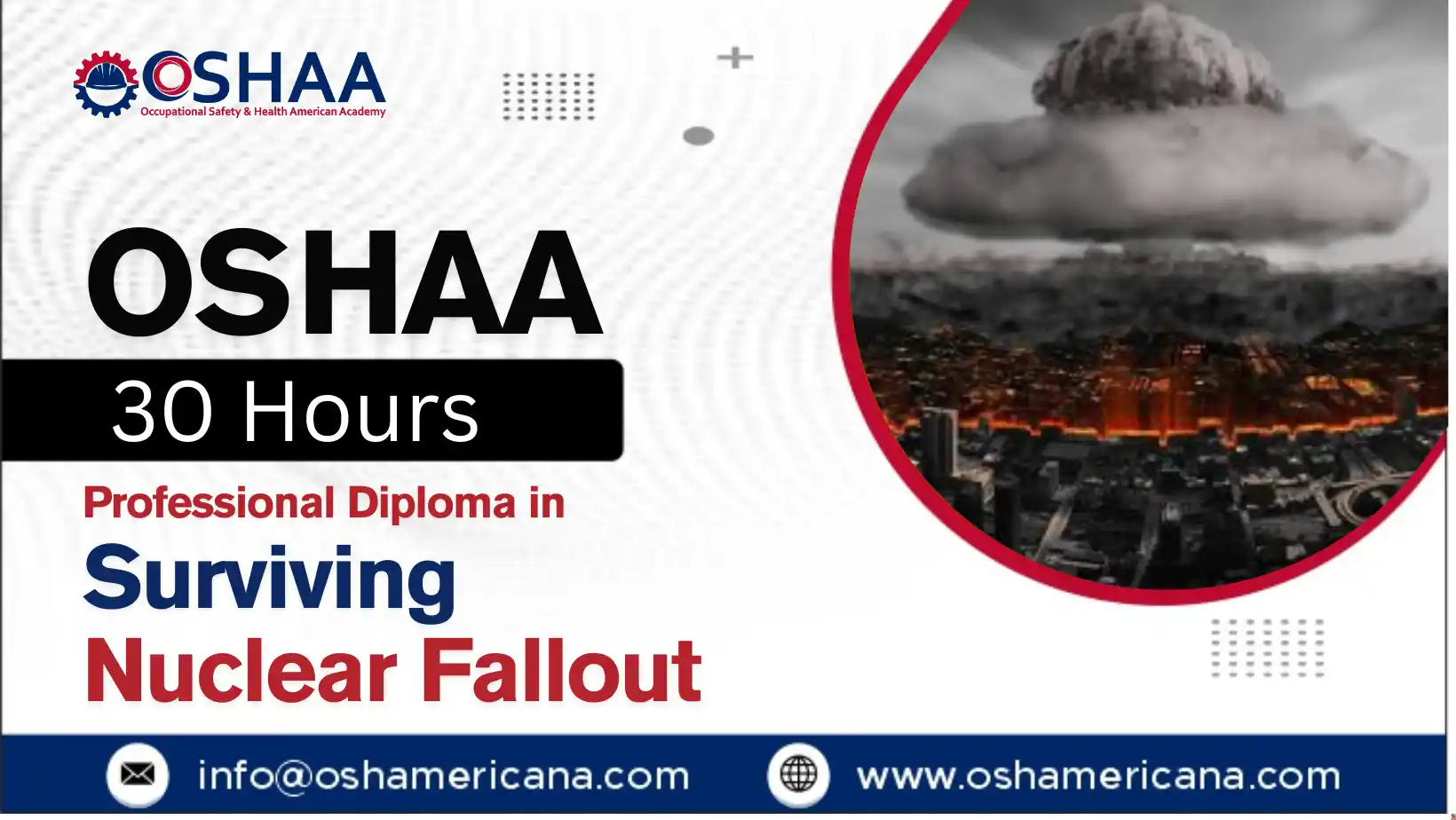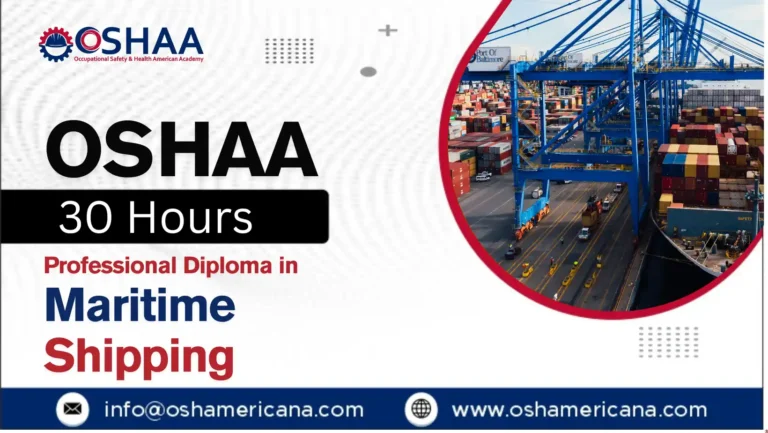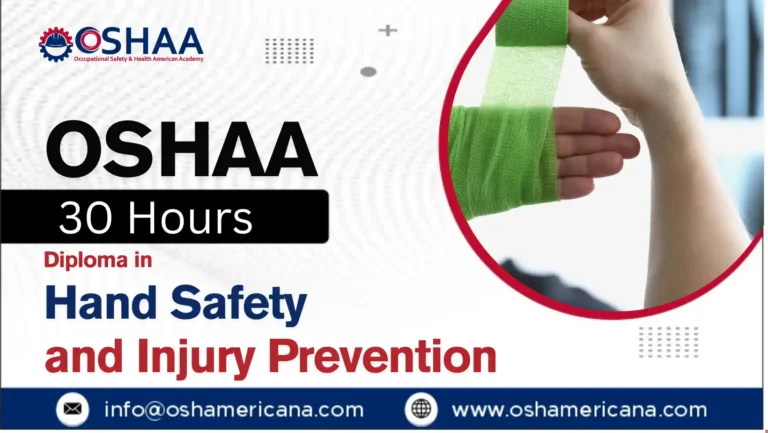Gain Life-Saving Knowledge with Professional Diploma in Surviving Nuclear Fallout
The OSHAA 30-Hours Professional Diploma in Surviving Nuclear Fallout equips participants with essential knowledge and life-saving skills to survive, respond, and manage nuclear incidents effectively. This professionally structured programme combines scientific principles, emergency planning, and practical survival strategies into a concise, accessible course.
Nuclear fallout occurs when radioactive material from a nuclear blast or accident descends to Earth, posing serious health and environmental risks. The diploma provides a comprehensive understanding of radiation types, their effects on the human body, and strategies to minimise exposure. Participants also examine historical events and real-world scenarios to understand how factors like blast radius, wind direction, and terrain influence fallout patterns.
The course focuses on practical emergency preparedness, covering shelter construction, decontamination procedures, medical first aid, safe food and water practices, and communication during crises. It also emphasises psychological resilience and community cooperation for post-disaster recovery. Delivered online with a flexible format, the programme allows learners to progress at their own pace while gaining actionable skills. This diploma prepares individuals to respond confidently and effectively to one of the most serious threats to public safety..
OSHAA 30-Hours Professional Diploma in Surviving Nuclear Fallout
Study Units
Learning Outcomes
Introduction to Nuclear Fallout and Radiological Threats (3 hours)
- Understand the concept of nuclear fallout and its causes
- Identify different types of radiological threats and their potential impact
- Recognise the global implications of nuclear events on public health and safety
- Gain foundational knowledge of nuclear terminology and emergency context
Types of Radiation and Their Effects on Human Health (3 hours)
- Differentiate between alpha, beta, gamma, and neutron radiation
- Understand how radiation affects human cells and organ systems
- Identify symptoms of radiation sickness and long-term exposure risks
- Learn safe exposure limits and methods to reduce radiation harm
Historical Case Studies: Lessons from Past Nuclear Events (3 hours)
- Examine key nuclear incidents such as Hiroshima, Chernobyl, and Fukushima
- Identify patterns in emergency response and public health outcomes
- Learn from past successes and failures in crisis management
- Apply lessons learned to improve future preparedness strategies
Emergency Preparedness and Risk Assessment (3.5 hours)
- Learn how to conduct personal and community-level risk assessments
- Understand the importance of advance planning and resource allocation
- Create checklists and preparedness plans for different fallout scenarios
- Identify vulnerable populations and high-risk zones
Building and Securing Fallout Shelters (3.5 hours)
- Understand the structural requirements of an effective fallout shelter
- Learn how to locate, build, or adapt a space for radiation protection
- Gain knowledge of ventilation, insulation, and shielding materials
- Ensure safety, sustainability, and long-term occupancy planning
Decontamination Procedures and Radiation Protection (3 hours)
- Learn the step-by-step process for personal and environmental decontamination
- Identify appropriate clothing, equipment, and tools for protection
- Understand contamination risks and how to minimise exposure
- Apply procedures in various settings including homes and shelters
Medical First Aid and Managing Radiation Exposure (3 hours)
- Recognise symptoms of acute radiation syndrome and related conditions
- Apply basic first aid techniques in contaminated environments
- Understand the use of potassium iodide and other medical countermeasures
- Develop protocols for triage and emergency response during fallout events
Safe Food, Water, and Resource Management During Fallout (3 hours)
- Identify methods to store and protect food and water from contamination
- Understand how to purify and ration limited resources
- Learn how to manage essential supplies under emergency conditions
- Implement safety guidelines for food preparation and storage
Psychological Resilience and Crisis Decision-Making (2.5 hours)
- Understand the psychological impact of nuclear emergencies
- Learn strategies to build emotional resilience and mental preparedness
- Develop techniques for decision-making under high-stress conditions
- Support others during prolonged periods of uncertainty or isolation
Post-Fallout Recovery, Communication, and Community Coordination (2.5 hours)
- Learn steps for safely exiting shelter and assessing external conditions
- Understand communication strategies when traditional systems fail
- Coordinate with local authorities and aid organisations post-disaster
- Contribute to community rebuilding, resource distribution, and support networks
- Gain essential knowledge about nuclear fallout, radiation exposure, and protective strategies
- Develop practical skills for building, equipping, and maintaining a fallout shelter
- Learn effective decontamination procedures to reduce health risks in radiological emergencies
- Understand how to manage food, water, and essential supplies during and after a fallout event
- Acquire first aid and emergency care techniques specific to radiation exposure scenarios
- Build crisis decision-making skills and psychological resilience in high-stress situations
- Explore real-world case studies to learn from past nuclear events and improve response planning
- Learn to assess risk and create personalised and community-level preparedness plans
- Gain insight into long-term recovery, communication systems, and community coordination
- Earn a professionally recognised qualification awarded by OSHAA to enhance career credibility in emergency response, health and safety, or disaster management fields
The OSHAA 30-Hours Professional Diploma in Surviving Nuclear Fallout is designed for individuals who seek to understand and prepare for radiological emergencies through structured, practical training. This course is ideal for:
- Emergency response professionals involved in disaster planning and management
- Health and safety officers seeking to enhance their risk preparedness strategies
- Civil defence personnel responsible for community protection and coordination
- Humanitarian aid workers operating in crisis or post-disaster environments
- Security and defence professionals requiring knowledge of nuclear risk scenarios
- Facility managers and safety coordinators in high-risk or sensitive locations
- Participants interested in gaining practical survival skills in nuclear fallout conditions
- Anyone committed to improving personal, family, or organisational preparedness in high-risk environments
This course is especially relevant for participants working in roles where crisis readiness, survival planning, and public safety are of critical importance.







